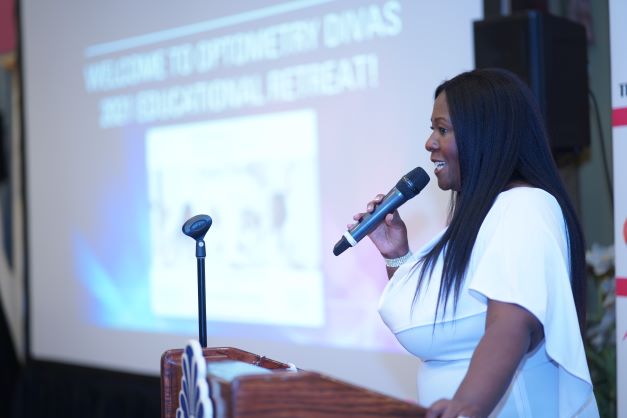5 Communications Skills Every CEO Optometrist Must Have

5 Communications Skills Every CEO Optometrist Must Have
One of the key pillars of the CEO of YOU® business success blueprint is leadership. Whether you have multiple locations and have been practicing for over 20 years or are just starting out today, your leadership skills hinge on your ability to communicate effectively with others. Here are 5 communication skills that will make you a better leader, improve your relationships with other people and boost your teams’ productivity and morale.
1. Be Self-Aware
All good communication starts from a place of self-awareness. Self awareness is your ability to notice your feelings, your physical sensations, your reactions, your habits, your behaviors, and your thoughts.
When you’re communicating with other people, you need to be aware of your internal dialogue founded on the things I listed above. Be sure that what you’re communicating is based on current and relevant information, and tailor your message accordingly.
2. Know your audience
The best communication arises out of understanding whomever you’re speaking to. Knowing your team’s motivations, preferred communication styles, learning styles, etc., allows you to adapt your message and increase the odds of effective communication.
Making a personal connection facilitates empathy, puts people at ease and builds trust. Just make sure that personal connections are genuine, not exploitative.
3. Use clear-cut communication
Be direct, specific and clear to increase the likelihood that your team will comprehend and take action on whatever you’re asking from them. It’s better to over-explain something than to leave room for misunderstanding.
Whenever you’re giving an assignment, focus on providing simple, actionable and specific instructions. It’s helpful to prepare your thoughts in advance so you include all the relevant details.
Don’t end a conversation until you’re sure the other person understands your objectives and how to achieve them. Deliver these instructions in a friendly, open way so the other person knows they can approach you with follow-up questions.
4. Pay attention to nonverbal cues
Plenty of research suggests nonverbal communication is just as important as what a person says—maybe even more. Facial expressions, hand gestures, posture and eye contact all play a major role in affirming or undermining your message.
Whenever you’re talking with your team, practice being aware of your own body language and their body language. In particular, pay attention to whether your body language aligns with what you’re saying—this will help you be a more trustworthy communicator and can help you seem more self-assured.
5. Listen more than you speak.
One of the best ways to encourage open and honest communication with your team is to model active listening. When someone is speaking to you, really listen to what they’re saying. Ask follow-up questions to demonstrate that you’re paying attention and to make sure there are no miscommunications.
Keep an open mind and focus on thoughtfully responding to what they say instead of kneejerk reacting to it. This practice builds rapport and understanding between you and your team.
All of these communication skills will take time to develop. You won’t master them in a day or even a year. Instead, you’ll need to commit to practicing these strategies for life. The more you implement these skills, the more they’ll start to feel like second nature.






Responses